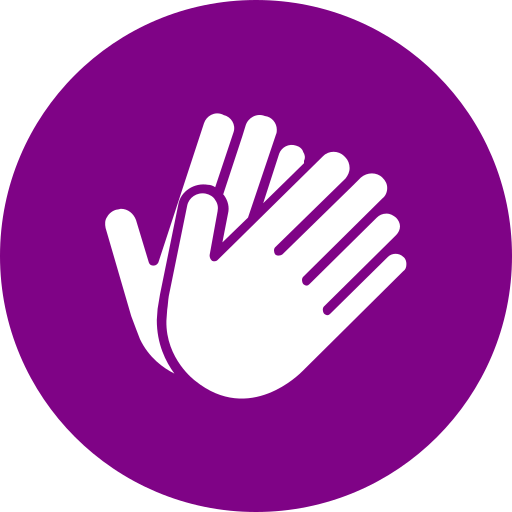#AIinHealthcare
❤️🩹 4 Ways AI is Transforming Healthcare
Artificial intelligence (AI) is revolutionizing healthcare in several significant ways:
1. Enhanced Diagnostic Accuracy: AI systems can identify fractures that clinicians might overlook, thereby reducing the need for unnecessary X-rays and follow-up appointments. For instance, the UK's National Institute for Health and Care Excellence (NICE) has recognized AI's reliability in this area.
2. Optimized Emergency Response: AI models assist paramedics in determining which patients require hospital transport, improving resource allocation. A study in Yorkshire, England, demonstrated that AI could accurately predict the necessity for hospital transfers in 80% of cases.
3. Early Disease Detection: By analyzing extensive medical data, AI can predict the onset of diseases like Alzheimer's and chronic obstructive pulmonary disease before symptoms appear, enabling earlier and more effective interventions.
4. Clinical Decision Support: AI-powered chatbots provide healthcare professionals with rapid access to medical information, aiding in swift and informed decision-making. However, it's crucial to ensure these tools are used appropriately to avoid potential misinformation.
While AI offers transformative potential in healthcare, human oversight remains essential to ensure accuracy and ethical application.
#ai #healthcare
More info @ https://www.gavi.org/vaccineswork/4-ways-ai-transforming-healthcare?utm_source=newsletter.genai.works&utm_medium=newsletter&utm_campaign=4-ways-ai-is-transforming-healthcare-amazon-updated-and-more&_bhlid=0f6f6fe5b99356e24bd37f9caf61543ee20c0652
❤️🩹 4 Ways AI is Transforming Healthcare
Artificial intelligence (AI) is revolutionizing healthcare in several significant ways:
1. Enhanced Diagnostic Accuracy: AI systems can identify fractures that clinicians might overlook, thereby reducing the need for unnecessary X-rays and follow-up appointments. For instance, the UK's National Institute for Health and Care Excellence (NICE) has recognized AI's reliability in this area.
2. Optimized Emergency Response: AI models assist paramedics in determining which patients require hospital transport, improving resource allocation. A study in Yorkshire, England, demonstrated that AI could accurately predict the necessity for hospital transfers in 80% of cases.
3. Early Disease Detection: By analyzing extensive medical data, AI can predict the onset of diseases like Alzheimer's and chronic obstructive pulmonary disease before symptoms appear, enabling earlier and more effective interventions.
4. Clinical Decision Support: AI-powered chatbots provide healthcare professionals with rapid access to medical information, aiding in swift and informed decision-making. However, it's crucial to ensure these tools are used appropriately to avoid potential misinformation.
While AI offers transformative potential in healthcare, human oversight remains essential to ensure accuracy and ethical application.
#ai #healthcare
More info @ https://www.gavi.org/vaccineswork/4-ways-ai-transforming-healthcare?utm_source=newsletter.genai.works&utm_medium=newsletter&utm_campaign=4-ways-ai-is-transforming-healthcare-amazon-updated-and-more&_bhlid=0f6f6fe5b99356e24bd37f9caf61543ee20c0652
#AIinHealthcare
❤️🩹 4 Ways AI is Transforming Healthcare
Artificial intelligence (AI) is revolutionizing healthcare in several significant ways:
1. Enhanced Diagnostic Accuracy: AI systems can identify fractures that clinicians might overlook, thereby reducing the need for unnecessary X-rays and follow-up appointments. For instance, the UK's National Institute for Health and Care Excellence (NICE) has recognized AI's reliability in this area.
2. Optimized Emergency Response: AI models assist paramedics in determining which patients require hospital transport, improving resource allocation. A study in Yorkshire, England, demonstrated that AI could accurately predict the necessity for hospital transfers in 80% of cases.
3. Early Disease Detection: By analyzing extensive medical data, AI can predict the onset of diseases like Alzheimer's and chronic obstructive pulmonary disease before symptoms appear, enabling earlier and more effective interventions.
4. Clinical Decision Support: AI-powered chatbots provide healthcare professionals with rapid access to medical information, aiding in swift and informed decision-making. However, it's crucial to ensure these tools are used appropriately to avoid potential misinformation.
While AI offers transformative potential in healthcare, human oversight remains essential to ensure accuracy and ethical application.
#ai #healthcare
More info @ https://www.gavi.org/vaccineswork/4-ways-ai-transforming-healthcare?utm_source=newsletter.genai.works&utm_medium=newsletter&utm_campaign=4-ways-ai-is-transforming-healthcare-amazon-updated-and-more&_bhlid=0f6f6fe5b99356e24bd37f9caf61543ee20c0652







